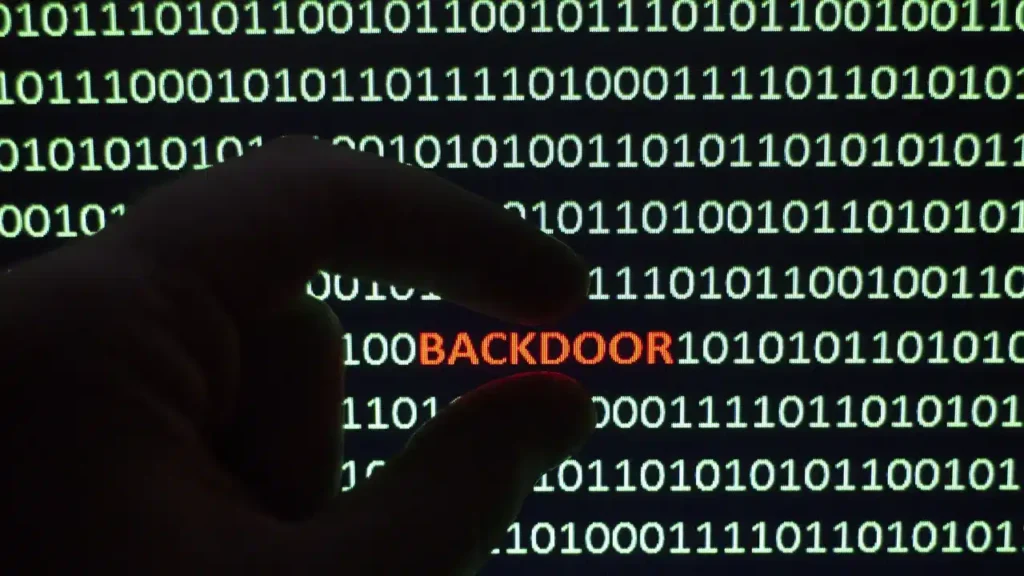CVE-2024-3094 current in the XZ Utils library might permit an attacker to make use of malicious code to compromise the integrity of affected programs
On March 29, a developer recognized CVE-2024-3094, a crucial vulnerability in XZ Utils (liblzma), a crucial part in Debian sid programs. Andres Freund, the developer in query, after noticing uncommon exercise on his system, determined to take his findings to an open-source safety discussion board. His investigation revealed the presence of a backdoor in variations 5.6.0 and 5.6.1 of XZ Utils, launched by a contributor. This safety incident has been cataloged beneath the identifier CVE-2024-3094, alerting the digital safety group to the urgency of mitigating this risk.
Within the compromised variations of XZ Utils, it was found that the injected malicious code, when executed, operated throughout the similar course of because the OpenSSH server (SSHD). This code altered the decryption routines on the OpenSSH server, thus permitting an attacker in possession of a specific non-public key to ship arbitrary code by means of SSH. The directions despatched can be executed in a step previous to authentication, granting the attacker full management over the affected machines, even earlier than the authentication course of was accomplished, which represents a major risk to the integrity of the compromised programs.
Technical evaluation of the backdoor
The malicious code is built-in into the OpenSSH server (sshd course of), since liblzma, which incorporates the backdoor, is a required part in some variations of OpenSSH. Subsequent, we'll see the circulate it follows to execute the payload despatched by the attacker:
1. The malicious code intercepts the RSA_public_decrypt operate, initially used for RSA signature validation.
2. When an SSH consumer makes a connection, the malicious code obtains the worth of N throughout the RSA construction despatched to the RSA_public_decrypt operate.
3. The final 240 bytes of the worth “N” are then decrypted utilizing the ChaCHa20 algorithm with a decryption key included in the malicious code.
0a 31 fd 3b 2f 1f c6 92 92 68 32 52 c8 c1 ac 28
34 d1 f2 c9 75 c4 76 5e b1 f6 88 58 88 93 3e 48
4. After this step, the validity of a 114-byte signature included in the decrypted information is verified utilizing the Ed448 elliptic curve uneven signature algorithm, utilizing the next public key:
0a 31 fd 3b 2f 1f c6 92 92 68 32 52 c8 c1 ac 28
34 d1 f2 c9 75 c4 76 5e b1 f6 88 58 88 93 3e 48
10 0c b0 6c 3a be 14 ee 89 55 d2 45 00 c7 7f 6e
20 d3 2c 60 2b 2c 6d 31 00
5. Lastly, the backdoor retrieves the string that continues the validated signature. If the signature is legitimate, the textual content, which accommodates the command to be executed, is handed on to system() for execution.
6. If the payload isn't legitimate, the backdoor continues the execution of the RSA_public_decrypt operate transparently and discards the acquired command.
Principal options of CVE-2024-3094
The next are the primary options of those vulnerabilities.
- CVE Identifier: CVE-2024-3094
- CVSS Vector: CVSS:3.1/AV:N/AC:L/PR:N/UI:N/S:C/C:H/I:H/A:H (10 Vital)
- Publication Date: 03/29/2024
- Affected Software program: xz-utils
- Affected variations:
Mitigation of the vulnerability CVE-2024-3094
All main Linux distributions advocate rolling again to variations previous to the inclusion of XZ Utils 5.6.0 and 5.6.1 or updating to newer variations.
| Distribution | Affected variations |
|---|---|
| Pink Hat | Fedora Linux 40 and Fedora Rawhide |
| Debian | No steady model of Debian is understood to be affected. The compromised packages have been a part of Debian’s testing, unstable, and experimental distributions, with variations starting from 5.5.1alpha-0.1 (uploaded on 02-01-2024) to five.6.1-1 (included). |
| Kali | The vulnerability impacted Kali from March 26 to March 29. Should you up to date your Kali set up on or after March 26, it's important to use the newest updates at the moment to resolve this challenge. Nevertheless, when you didn't replace your Kali set up earlier than March 26, you aren't affected by this vulnerability. |
| OpenSUSE | OpenSUSE Tumbleweed and OpenSUSE Micro OS have been affected between March 7 and March 28, 2024. |
| Alpine | Variations 5.6 prior to five.6.1-r2 |
| Arch | Installer model 2024.03.01 Digital machine pictures 20240301.218094 and 20240315.221711 Container pictures created between February 24, 2024 and March 28, 2024, included. |
Vulnerability Detection
The presence of the vulnerability CVE-2024-3094 will be recognized by working the next command in a Linux atmosphere that may present the present model of the library.
strings which xz | grep '5.6.[01]'
As a part of its rising vulnerability service, Tarlogic proactively screens its shoppers’ perimeter to report, detect, and urgently notify them of the presence of this vulnerability, in addition to different crucial threats that would trigger a critical influence on the safety of their property.
References
